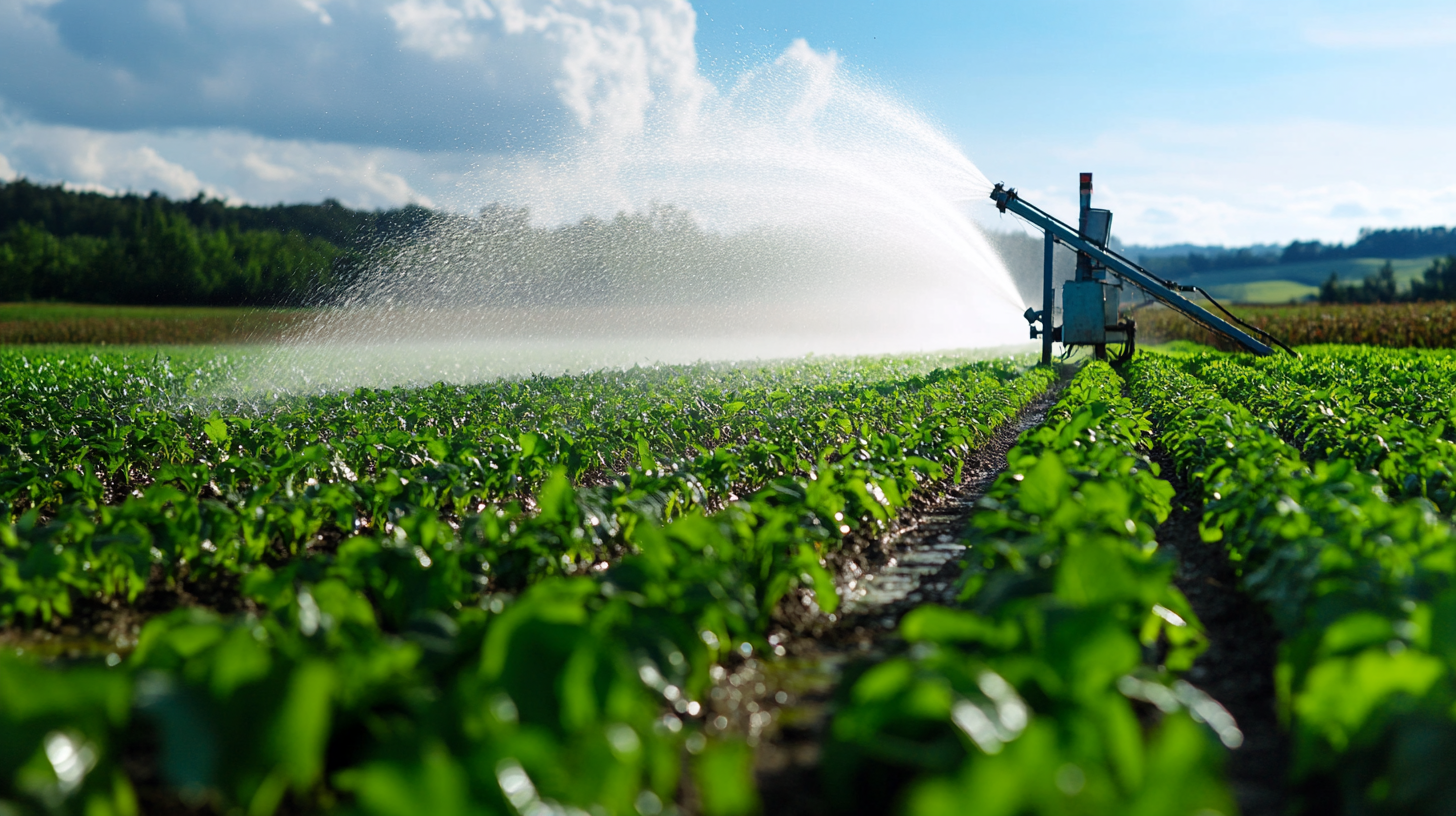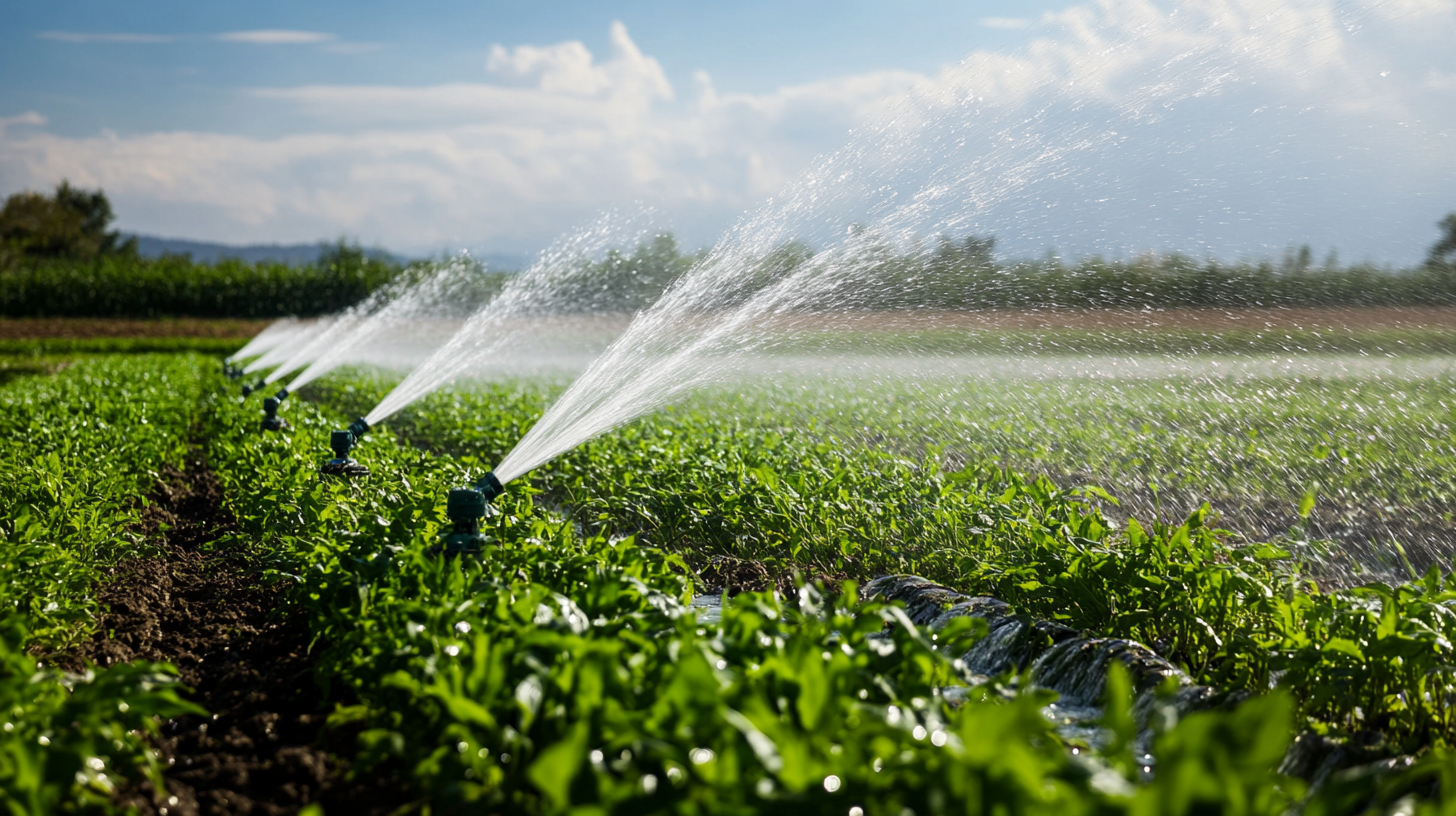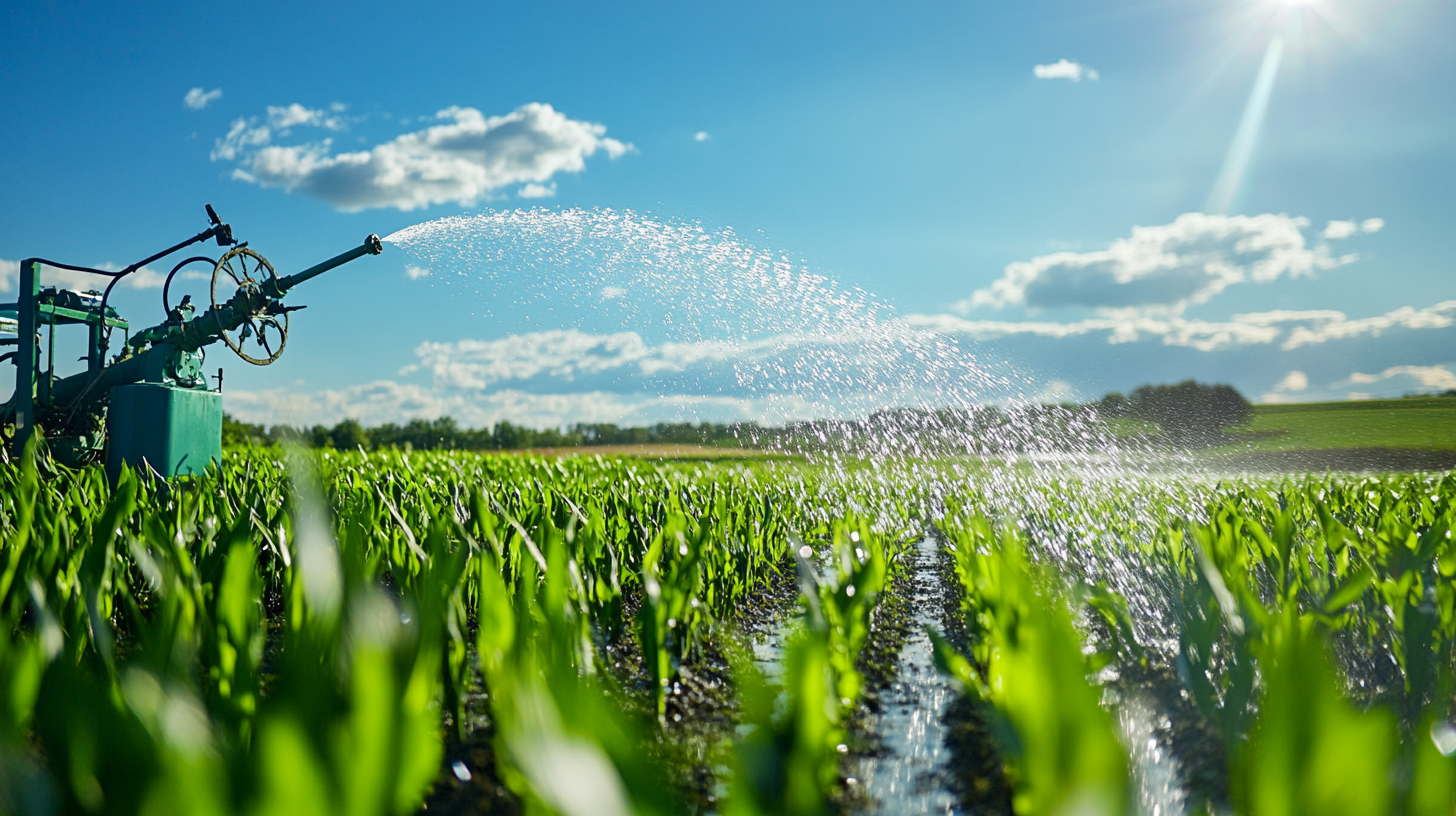In the ever-evolving agricultural landscape, the significance of reliable suppliers for agricultural water sprinkler solutions cannot be overstated. As farmers and agricultural businesses strive to optimize water usage and ensure efficient irrigation, the choice of sprinkler systems becomes paramount. However, selecting the right supplier is just as critical as choosing the appropriate technology. This blog aims to guide you through the process of identifying trustworthy suppliers who can provide the best agricultural water sprinkler solutions tailored to your needs.

By examining key factors such as supplier reputation, product quality, customer service, and after-sales support, you can make informed decisions that will enhance your irrigation practices and ultimately contribute to more sustainable agricultural outcomes. Join us as we explore essential examples and tips for navigating the supplier landscape in search of the ideal agricultural water sprinkler options.
When assessing the reliability of suppliers for agricultural water sprinkler solutions, several key factors come into play.
Firstly, the supplier's track record and experience in the agricultural sector are crucial.
According to a report by MarketsandMarkets, the global agricultural sprinklers market is expected to reach
$8.7 billion by 2025, highlighting the competitive landscape and the importance of choosing a supplier
with proven expertise. Suppliers with a long-standing presence in the market often have established relationships with
farmers and a better understanding of their needs.
Additionally, evaluating the quality of the products offered is essential. The American Society of Agricultural and
Biological Engineers (ASABE) provides standards that can help in measuring the performance and durability of
sprinkler systems. A reliable supplier will adhere to these standards, ensuring that the products not only meet
the basic requirements but also contribute to efficient water usage—an increasingly critical factor given the
escalating water scarcity issues. Furthermore, examining customer reviews and case studies can provide insights
into the performance of suppliers’ products in real-world agricultural settings, further solidifying or refuting
their reliability.

When searching for reliable suppliers in agricultural water sprinkler solutions, evaluating their experience and reputation is crucial. According to a recent report by the International Irrigation Management Institute, effective irrigation can increase crop yields by 30% to 60%, highlighting the significance of using quality sprinkler solutions. Suppliers with a solid track record often demonstrate a commitment to innovation and sustainability, which are essential for long-term success in agriculture.
Tip: Look for suppliers that have been in the industry for at least five years. This experience often translates to a deeper understanding of various agricultural needs and challenges. Additionally, check if the supplier has received any industry certifications or awards, as these can serve as indicators of their reliability and quality of service.
Moreover, online reviews and testimonials can provide insight into a supplier’s reputation. A study by the Agricultural Marketing Resource Center found that 70% of farmers rely on peer recommendations and online feedback when choosing suppliers. Engaging with current or past customers can also shed light on factors like customer service, responsiveness, and the overall reliability of the supplier.
Tip: Don't hesitate to ask for references and case studies from potential suppliers. A reputable supplier should be willing to share success stories that demonstrate their capabilities and the effectiveness of their sprinkler solutions in real agricultural settings.
When seeking reliable suppliers for agricultural water sprinkler solutions, understanding quality standards and certifications is paramount. According to a report by the International Organization for Standardization (ISO), approximately 80% of agricultural equipment failures can be attributed to substandard materials and poor manufacturing processes. This emphasizes the necessity for farmers to ensure that their suppliers comply with recognized quality standards such as ISO 9001 for quality management systems and ISO 14001 for environmental management. These certifications not only confirm a supplier’s commitment to quality but also indicate adherence to sustainable practices crucial for long-term agricultural success.
In addition to ISO certifications, the American Society of Agricultural and Biological Engineers (ASABE) has established performance standards specific to agricultural equipment, including sprinkler systems. Equipment that meets ASABE standards often showcases improved efficiency and durability, reducing the total cost of ownership for farmers. A study published in the Agricultural Water Management Journal revealed that implementing high-quality sprinkler systems could increase water use efficiency by up to 30%, directly impacting crop yield and profitability. By prioritizing suppliers with credible certifications, agricultural producers can ensure they invest in reliable technologies that enhance their operations and contribute to sustainable agriculture.
| Supplier Location | Years in Business | Certifications | Quality Standards | Customer Rating |
|---|---|---|---|---|
| California, USA | 15 | ISO 9001, CE | ASTM Standards | 4.8/5 |
| Ontario, Canada | 10 | NSF, CSA | ISO 14001 | 4.6/5 |
| Bavaria, Germany | 20 | DIN, ISO 9001 | EN Standards | 4.9/5 |
| New South Wales, Australia | 12 | AS, ISO 14001 | Quality Australia | 4.7/5 |
| Maharashtra, India | 8 | ISI, ISO 9001 | BIS Standards | 4.5/5 |
When searching for reliable suppliers for agricultural water sprinkler solutions, customer reviews and testimonials play a crucial role in assessing their trustworthiness. These firsthand accounts provide valuable insights into the supplier's performance, product quality, and customer service. Potential buyers should look for detailed reviews that discuss specific experiences, highlighting both the strengths and weaknesses of the supplier. A pattern of consistent positive feedback can indicate a trustworthy provider, while recurring complaints may serve as red flags.
In addition to quantity, the quality of reviews matters significantly. Testimonials that mention how suppliers handled issues, their responsiveness, and the overall satisfaction of customers can give a deeper understanding of what to expect. Engaging in conversations with existing customers or seeking third-party review platforms can further enhance the evaluation process. This thorough analysis not only helps in identifying reliable suppliers but also ensures that the chosen agricultural water sprinkler solutions are of high quality, ultimately benefiting your farming operations.
 Establishing open communication is crucial when identifying reliable suppliers for agricultural water sprinkler solutions. Through transparent dialogue, both parties can share their expectations, capabilities, and limitations. This communication ensures that suppliers are not only aware of your specific needs but are also prepared to accommodate them. Regular check-ins and updates can help build trust, allowing you to address any concerns or changes in requirements early in the process. When suppliers feel valued and informed, they are more likely to prioritize your orders and offer better support.
Establishing open communication is crucial when identifying reliable suppliers for agricultural water sprinkler solutions. Through transparent dialogue, both parties can share their expectations, capabilities, and limitations. This communication ensures that suppliers are not only aware of your specific needs but are also prepared to accommodate them. Regular check-ins and updates can help build trust, allowing you to address any concerns or changes in requirements early in the process. When suppliers feel valued and informed, they are more likely to prioritize your orders and offer better support.
In addition to open communication, fostering a supportive relationship can lead to long-term success. Consider implementing collaborative strategies that involve joint problem-solving and innovation. When suppliers know they have a partner willing to invest in their success, they are more inclined to provide top-notch service and solutions tailored to your needs. Providing feedback on their products and services enhances mutual growth and encourages suppliers to improve their offerings, ensuring that your agricultural operations benefit from the best sprinkler technologies available.
